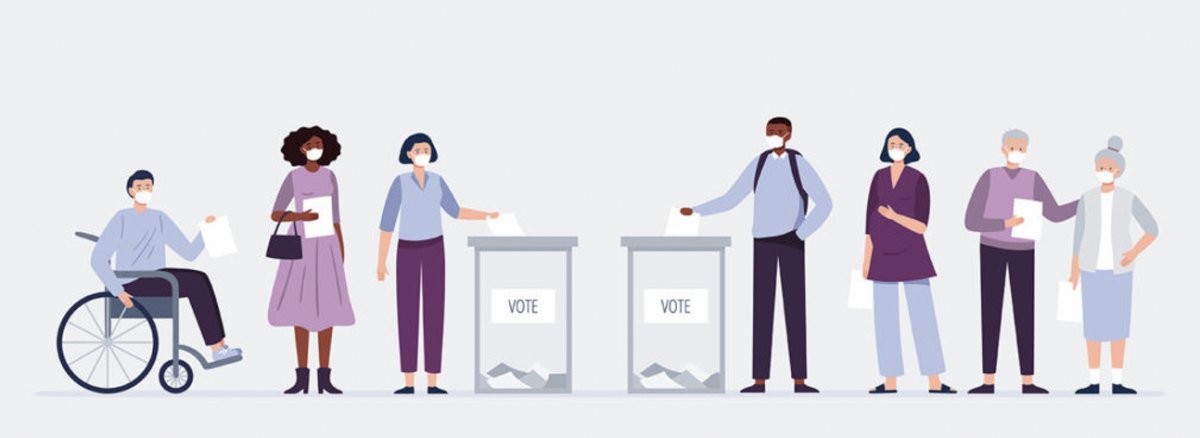As we get down to the last 15 days before the Election, more and more attention is being focused on the polls. It is a data-palooza for the analysts, with new algorithms being fed through tens of thousands of simulations every day, spewing out new results.
For most Americans though, especially in light of the 2016 election, one question stands out more than the predictions of who will win – can we trust the polls?
If I may quote the Reverend Lovejoy from the Simpsons, “Long answer, yes with an if – short answer, no with a but.”
As I mentioned, 2016 stands out as what appears to be a glaring mistake in the polling process. On October 19, 2016 most polls had Hillary Clinton enjoying a 4-7 point lead in national polling. This was shortly after the Entertainment Tonight tapes came out, and it looked like it was all over.
Things tightened up in the last weeks of the campaign, driven in part by the unusual public statement of then FBI director James Comey made that they might have to re-open an investigation of Clinton’s emails following the seizure of a laptop owned by Anthony Weiner.
In the last days before the election, Clinton was still the predicted winner with a lead of 2.5 points. The average of all polls predicted she would win with 48.6% to 44.3%.
We all know what happened – Donald J. Trump won the election. Therefore the polls were completely wrong, right?
Well, not exactly. Clinton actually won the popular vote by a count of 48.2% to 46.1%. This means here percentage of the popular vote was off by less than half a percent, well within the margin of error, and she still was the winner of the vote count. However, the electoral college gave the election to Trump with as little as 17,000 votes in three states making the difference. So just 0.012% of the total votes cast determined the outcome.
Pollsters today will tell you that they have adjusted their algorithms accordingly, and that current polls are much more accurate. So with Biden showing as of today an 8.5% lead in the national popular vote (53.6% to 45.1%), as well as leads in many swing states lost in 2016, he should be a shoe-in, right?
Well, not exactly.
You see opinion polls, no matter how firmly based in mathematics and computer models, have some fatal flaws. Last week I wrote about the advent of election prediction and used a short story by Isaac Asimov to illustrate some points. Today I will once again turn to the Good Doctor, this time with his sci-fi classic Foundation series to discuss these built-in flaws.
Dr. Asimov’s story is set in the far future, and I do mean far – at least 25-30,000 years from now. Mankind has spread across the galaxy, and its quadrillions of citizens inhabit millions of planets, making up a huge Galactic Empire.
One mathematician, Hari Seldon, begins to explore the possibility that with such a large data set, it might be possible to predict the broad strokes of the future. He calls this new science “psychohistory”. His initial analysis brings up a frightening conclusion; the Empire is doomed. He calculates a complete collapse of society, and an interregnum of 30,000 years of primitive suffering on now-isolated worlds before the galaxy can be knit back together.
As he refines his math, he sees a way out. He cannot stop the collapse, as it is already in motion. But he sees that he can use his calculations to guide the collapse, so that a new and more flexible Galactic Republic can be reborn after only 1,000 years, and without a complete fall to barbarism.
To do this, he sets up two Foundations at “opposite ends of the galaxy”. The First Foundation is very public, and will be the seed of the reborn galaxy. The Second Foundation is secret, and will be made up of trained psychohistorians who will labor to keep the 1,000 year plan on track.
Which brings us to the first flaw in election polling. Hari Seldon realized that his psychohistory would only work if the people of the galaxy were unaware of its predictions!
This is a huge flaw not only in opinion polls but in the whole field of futurists, people who try to predict coming trends and future crisis. To illustrate, let’s look at a predictive field that has done remarkably well over the past fifty years; weather forecasting.
As data collection has improved via satellites, doppler radar, remote sensors and historical data, the accuracy of weather prediction has done nothing but increase.
For most of human history, weather prediction was based solely on local observation of patterns. Once the telegraph was invented, it was possible to start gathering data from a larger area, and weather maps and reasonably accurate forecasts began. Like election forecasts, the rise of Univac in the mid-fifties set off an explosion of progress.
Today, 7-day forecasts are correct about 80% of the time, and 5-day forecasts are 90% accurate. Tornado warnings and hurricane tracking has saved tens of thousands of lives, and soon even advance warning of earthquakes may be possible.
A big reason this works so well is that the weather is completely unaware of the predictions. A hurricane does not give one whit what the data indicates about its probable path. Not so the opinion poll.
To see what I mean, consider a famous futurist prediction, one by Karl Marx. Between 1848 and 1883 he published the pamphlet The Communist Manifesto and the three-volume Das Kapital. In them he propounded the idea of class conflict, and predicted that the socio-economic pressures would give rise to a classless society, toppling Capitalism and bringing about a worker’s paradise.
So why are we still living in a Capitalist world? Was he completely wrong?
Historians agree that a better argument is that he was too accurate, and too forceful in his analysis. His work was widely read, and not just by the working class proletariat. Leaders in Russia and China used his work to justify control of the masses, promising a Communist golden era. The Capitalists also studied his work, and it scared the crap out of them. They in turn used his ideas to short-circuit the class conflict, and promote instead the idea that Capitalism led to a better life for everyone.
In short, his prediction of the future changed the future.
This is still very much a problem with political polling. How many people in elections look at the polls and decide there is no point in voting, as the race is as good as over? Especially if there are long lines on election day, or the weather is bad? Something as random as a sleet storm in a key precinct may cause a shift in the results for the entire state.
If I were King of the World, I would do away with polls completely. In fact, while I’m dreaming, here is my Ideal Election Reform in its entirety.
- PRIMARIES: There is a 30-day period when candidates for national, state and local offices can declare their candidacy and state their credentials. On the 31st day, the ballots are set. Now there are 45 days when candidates may campaign. At the end of campaigning, there are three-weeks of National Primary Voting – all states vote simultaneously during this period, and no polling data released. Where there are multiple candidates for an office, voters indicate their first, second, and third choices. Winner is the one with the most total votes.
- NATIONALS: Again, only 45 days of campaigning allowed, no polling. This time a 30-day period of simultaneous voting nationwide. To encourage 100% participation I would borrow a page from Ecuador here, and pass a law that you must vote in order to do things like renew your drivers license – or a return of the Poll Tax, only this time you pay a tax if you did NOT vote (unless you can show you were out of the country or otherwise unable to vote).
- TERM LIMITS: No more than two terms as President or Senator, no more than three terms as Representative. Judges appointed to 10-year terms, not for life.
- QUALIFICATIONS: All candidates for public office must score 80% or better on a test of basic Civics, American and World History, and the Constitution. No one may be elected that is younger than 25 or older than 65 on their first day in office.
Sadly, it looks like the paperwork is stalled on my promotion to King of the World. Even sadder, the people who benefit most from the current system are the ones in office, and they will never vote against their own best interest.
So what can we do? I suggest taking the polls with a grain of salt. Whether it is a national, state, or local race, pay absolutely no attention to where your candidate stands in the polls. I don’t care if they are 20 points ahead or 20 points behind. Be like a hurricane, and don’t let the winds of pollsters influence your course.
Get out and vote. The only opinion poll that matters is the one you answer in the voting booth.


